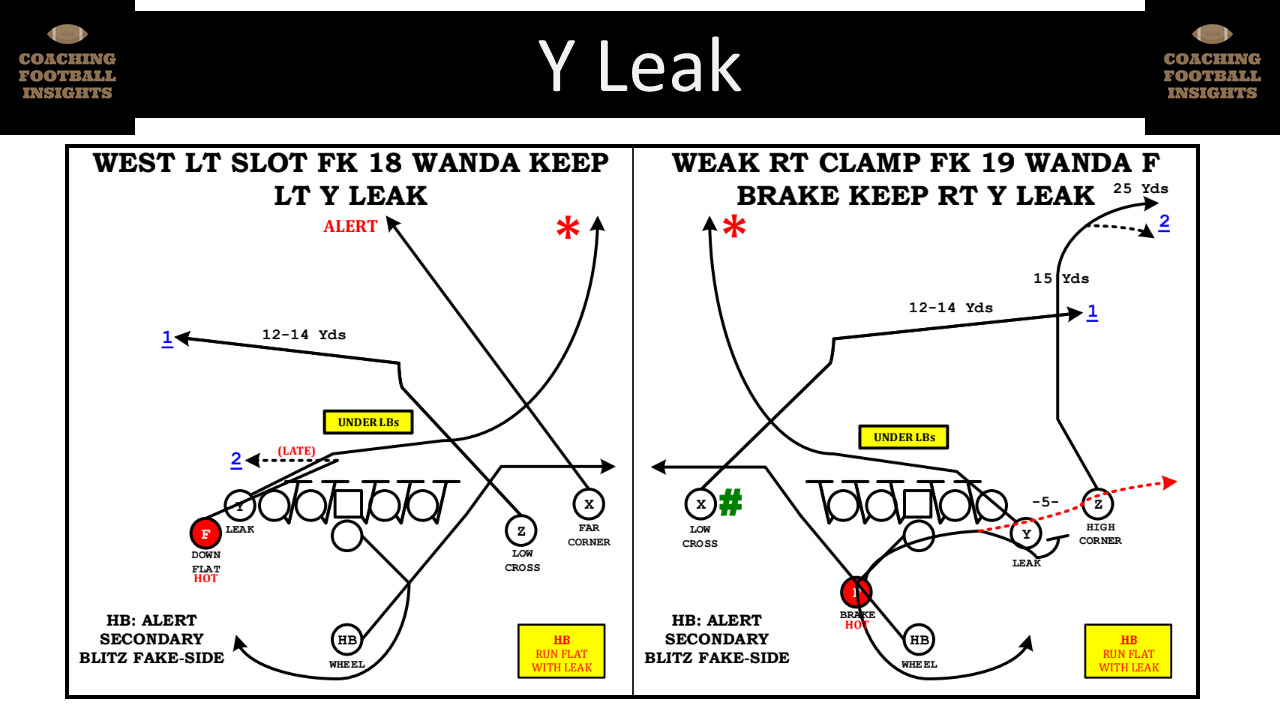Y Leak
Adding a tag to Keepers to take a shot.
Keepers are an essential part of the Wide Zone system. The defense will always game plan how to be sound vs both Wide Zone and Keepers. An offense must have a few adjustment plays to take advantage of common coverages.
The less you can change the initial scheme the better. Installing a new play is expensive and time-consuming, so having tags off your base plays that only change 1 assignment is a great way to layer your system without burdening all 11 players. That’s what we are going to look at today with Y Leak.
The key to being a good playcaller is sequencing your plays. This system starts with Wide Zone, which sets up the Keeper. One potential next play in the sequence is Leak. Y Leak looks identical to the base keeper with everyone but the Y having the same routes.
In case you missed it here is a detailed write-up on Keepers:
Leak Rout
The tight end or receiver tagged on the route will “block” down with the line of scrimmage. He will sell the run for 3-4 steps, then release and run down the heels of the defensive line. Once he clears the tackle, he will wheel up the numbers.
With selling run, the idea is the safeties and linebackers will take their eyes off the Leak route, allowing him to sneak out on his route undetected. Once the defenders identify a pass, they will see the normal Keeper route combinations, and react accordingly. This should leave a void for the leak route to expose.
Protection
The offensive line will block their normal Keep rules. The leak route takes a long time to develop, so it is important to leave a 2nd tight end or fullback in to help protect.
The quarterback will start to roll like on Keep but set his feet when he gets to the tackle. If the defense sniffs out the leak, he still has his normal Keeper routes to work.
Paid Subscribers get 10 minutes of Y leak Cut-Ups.






